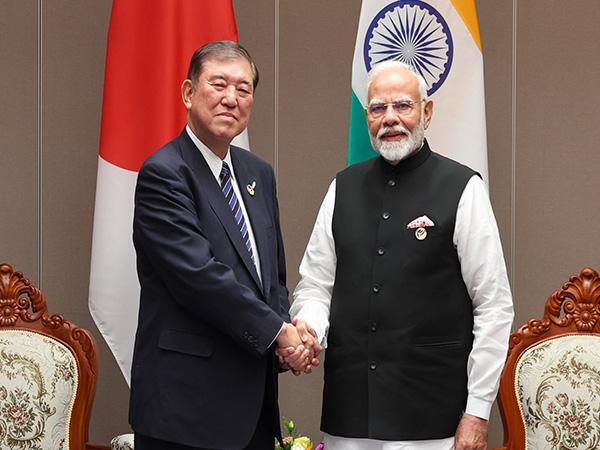
Our Technology & India’s Talent Complement Each Other: Japan PM
India and Japan have been strengthening their economic ties in recent years, and the latest remarks from Japan’s Prime Minister Shigeru Ishiba have reinforced the notion that their partnership is a match made in heaven. Speaking at the India-Japan Joint Economic Forum with Prime Minister Narendra Modi, Ishiba emphasized that Japan’s advanced technology and India’s outstanding talent complement each other perfectly, leading to a dramatic expansion of their economic ties.
This statement is music to the ears of entrepreneurs, business leaders, and policymakers on both sides, as it highlights the synergies between the two nations. Japan is renowned for its cutting-edge technology, innovative products, and manufacturing prowess, while India is home to a vast pool of talented individuals with skills in software development, engineering, and other areas.
The Japanese Prime Minister’s comment comes at a time when both countries are working together on several high-profile projects. One such project is the construction of the Mumbai-Ahmedabad High Speed Rail, which is a flagship initiative under the Make in India program. Many Japanese companies, including Kawasaki Heavy Industries, Mitsubishi Heavy Industries, and Marubeni Corporation, are playing a key role in this project, which aims to reduce travel time between the two cities to just two hours.
The Mumbai-Ahmedabad High Speed Rail is not an isolated example of Japan-India collaboration. There are numerous other projects in various stages of development, including the development of smart cities, infrastructure development, and renewable energy initiatives. These projects not only demonstrate the potential for cooperation between the two nations but also highlight the benefits of combining Japan’s technological expertise with India’s talent pool.
Ishiba’s statement also underscores the importance of international cooperation in a rapidly changing global landscape. As the world becomes increasingly interconnected, nations are recognizing the need to work together to address common challenges, such as climate change, economic inequality, and technological disruption.
Japan and India have been strengthening their bilateral ties in recent years, with a focus on areas such as trade, investment, and innovation. The two nations have agreed to work together on a range of initiatives, including the development of clean energy technologies, the promotion of small and medium-sized enterprises (SMEs), and the creation of a digital economy.
The Japan-India partnership is also gaining momentum in the fields of technology and innovation. Japanese companies such as Sony, Toshiba, and Honda are investing in Indian startups, while Indian companies like Infosys, Wipro, and Tata Consultancy Services are partnering with Japanese firms to develop new products and services.
In addition to the economic benefits, the Japan-India partnership also has significant implications for the global community. As two of the world’s largest democracies, Japan and India share a commitment to values such as democracy, human rights, and the rule of law. By working together, they can promote peace, stability, and prosperity not just in their own regions but around the world.
In conclusion, Japan Prime Minister Shigeru Ishiba’s statement highlighting the complementarity of Japan’s technology and India’s talent is a testament to the strength of the Japan-India partnership. As the two nations continue to work together on a range of projects and initiatives, they are not only strengthening their economic ties but also promoting global cooperation and prosperity.



